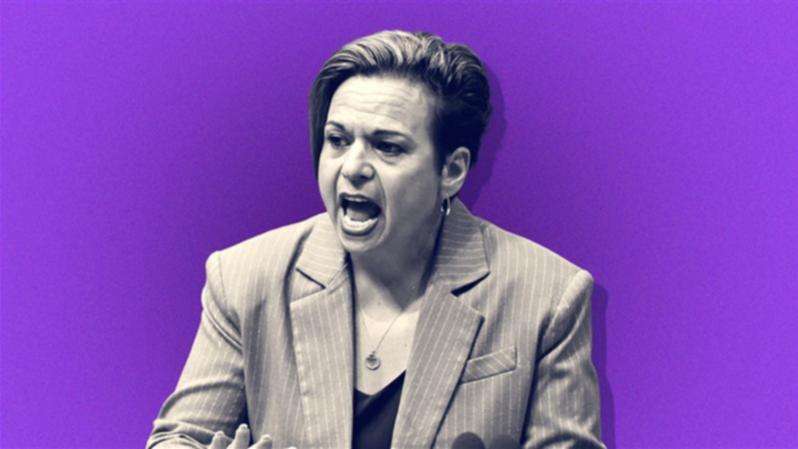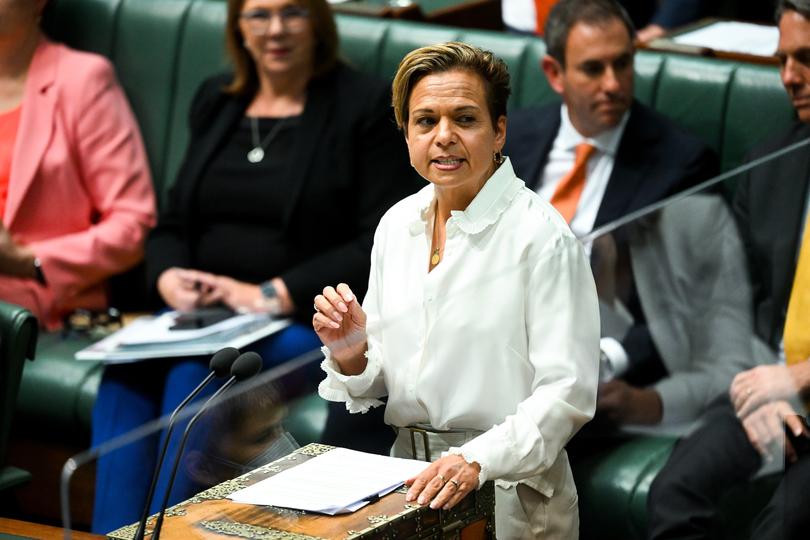Why Labor’s controversial ‘truth bill’ has triggered freedom of speech fears
A controversial bill on misinformation and disinformation has triggered fears over curbs on freedom of speech as the Albanese Government plans to push through a raft of new social media laws.

A controversial bill on misinformation and disinformation has triggered fears over curbs on freedom of speech as the Albanese Government prepares to push through a raft of new social media laws before the end of the year.
The Nightly understands the Government is still deciding whether to table the so-called “truth bill” in the upcoming parliamentary session.
The legislation aims to give Australia’s media watchdog the power to force tech giants to take action to stop harmful falsehoods spreading online but has proven far more contentious than parallel proposals to introduce a social media ban for under-16s and a digital duty of care.
Sign up to The Nightly's newsletters.
Get the first look at the digital newspaper, curated daily stories and breaking headlines delivered to your inbox.
By continuing you agree to our Terms and Privacy Policy.The bill was passed by the House of Representatives but faces a rocky ride in the Senate where the Coalition have denounced it as “dangerous” legislation that raises the risk of censorship and which would be wide open to abuse.
The Greens have not declared their final position pending a Senate inquiry report on November 25, leaving the fate of the bill potentially in the hands of a small group of independent MPs who have in recent days been indicating strong opposition.
Among them, David Pocock, independent senator for the ACT, who posted a YouTube video this week to confirm he would vote down the bill unless it underwent “major changes”.
“I don’t believe it takes the right approach to dealing with misinformation,” he said.
“Freedom of speech and the freedom to protest are critical parts of our democracy. And in Australia, we don’t have an overarching Human Rights Act that entrenches these rights. So, we need to tread very carefully whenever we make changes that may impact on them.”
On Thursday, David Coleman, shadow minister for communications who has been leading the Coalition’s charge to defeat the bill told 2GB Breakfast the draft was “an absolute shocker.”
“It will smash freedom of speech in Australia and that’s why just about everyone under the sun, apart from Michelle Rowland, has condemned it,” he added.
“You’ve got Senators saying they won’t vote for it. You’ve basically got every major religion in Australia saying it’s a bad idea because it’s going to suppress freedom of speech and ultimately the government will determine what can and can’t be said.”
His comments came on the back of a testy exchange between Communications Minister Michelle Rowland and the 2GB host as he pressed her over concerns about the bill and its implications for human rights.
Ms Rowland doubled down on the Government’s position that the crackdown on misinformation is backed by security agencies in the interests of protecting democratic society from “malicious actors” or “rogue states.”

The minister has previously cited cases including the misidentification of the Bondi Junction knife attacker earlier this year as well as content undermining government-approved vaccines as examples of the pressing need to act.
“We know that 80 percent of Australians are concerned about the amount of disinformation that proliferates online,” said Ms Rowland, arguing that the bill builds on an existing voluntary industry code.
Under the proposed law, the Australian Communications and Media Authority would have greater leverage to force tech companies to tackle falsehoods circulating on their platforms.
ACMA would not have the ability to remove individual posts but would instead push social media platforms to self-regulate, with the option of introducing a code of standards if they failed to do so.
The bill aims to force social media companies such as Google, Facebook, Instagram, X and TikTok to be more transparent by publishing their mechanisms for dealing with false, misleading and deceptive content, and to provide ACMA with this information.
The government body would also be granted powers to enforce financial penalties if platforms fall short of their obligations.
A spokesperson for Ms Rowland said the bill aimed to “hold big tech to account” and would introduce a complaints process to allow citizens to challenge content moderation decisions made by digital platforms.
“Nothing in the Bill requires platforms to take content down or remove user accounts unless it is disinformation involving inauthentic behaviour,” said the spokesperson.
But the Government is struggling to win over its detractors, not only among opposition MPs but civil rights groups and legal heavyweights including leading constitutional lawyer Anne Twomey and James McComish from the Victorian Bar.
On Monday, legal experts warned the bill lacked answers to critical questions in a bruising hearing that will do little to help the government drag the legislation over the line.
Ms Twomey warned Labor’s plans could “all go very wrong” and raised concerns about the outsourcing of censorship decisions to foreign-owned social media companies as well as the legal tricky nature of defining what constitutes “misinformation.”
Her testimony raised doubts about “… the capacity and the will of digital platforms to make these very difficult assessments and judgments in a fair, informed and consistent manner.”
Ms Twomey’s objections “strike a dagger in the heart of Labor’s Misinformation Bill,” said Mr Coleman.
Opposition from Tammy Tyrell, independent senator for Tasmania, has pushed the law further towards a cliff edge.
In a statement on X on Tuesday, Ms Tyrrell slammed the plan to put responsibility onto social media companies to decide what is or isn’t misinformation as a “slippery slope.”
“One person’s truth can be another person’s lie, and both sides have the evidence to back up their arguments. What is and isn’t truth or the facts isn’t always clear cut - I mean, have you met politicians?”

